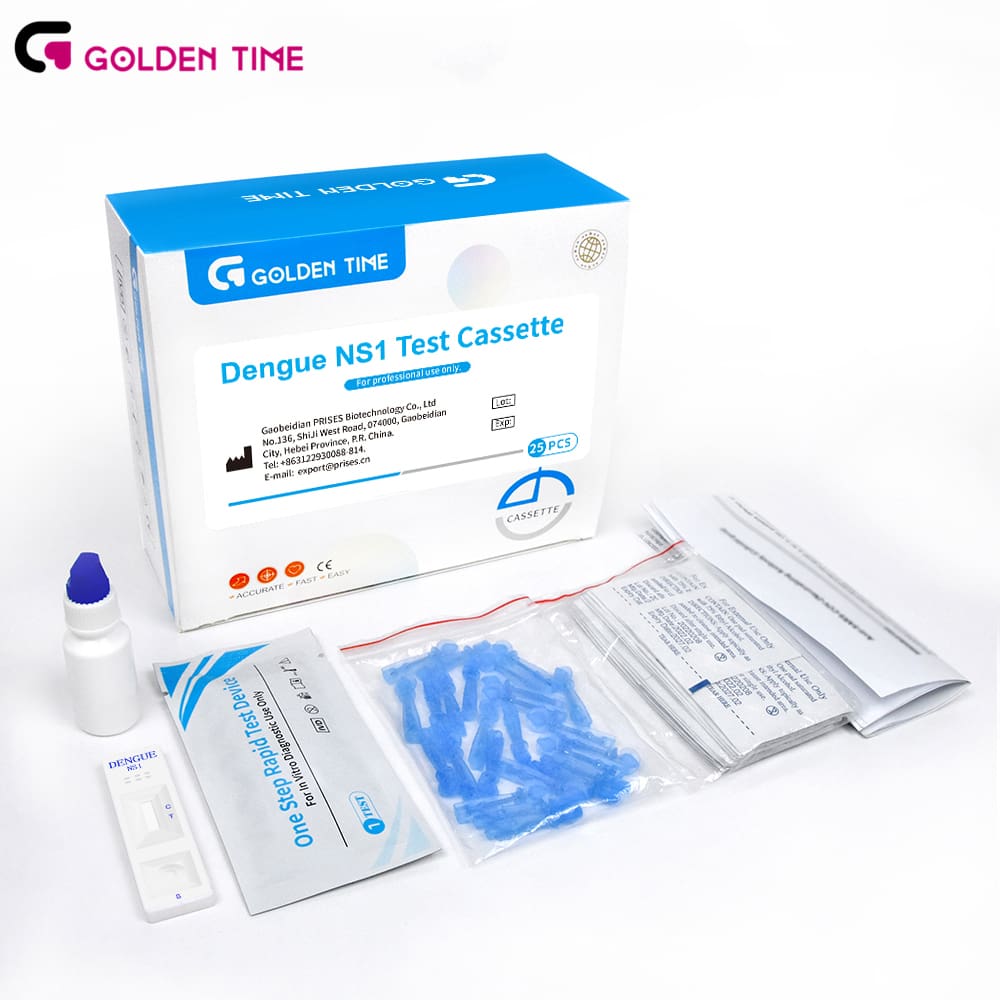Sep . 11, 2024 06:06 Back to list
Dengue Fever Testing Kit - Fast, Accurate, and Reliable Diagnosis
The Importance of Dengue Fever Testing Kits
Dengue fever, a tropical disease transmitted by mosquitoes, particularly Aedes aegypti, poses significant health risks, especially in regions with warm climates. With the World Health Organization estimating around 390 million infections each year, the need for effective prevention, diagnosis, and treatment has never been more critical. One of the cornerstones in the fight against dengue fever is the development and utilization of dengue fever testing kits.
Dengue fever testing kits are essential medical tools used to identify the presence of the dengue virus in patients quickly. These kits typically use serological testing methods to detect specific antibodies (IgM and IgG) produced in response to the infection. The presence of IgM indicates a recent infection, while IgG suggests a past infection. Early and accurate diagnosis is crucial for initiating timely treatment and managing the disease effectively, as dengue can develop into more severe forms, such as dengue hemorrhagic fever or dengue shock syndrome.
The advantages of employing dengue fever testing kits are manifold. Firstly, they provide quick results, often within a few hours, enabling healthcare professionals to make informed decisions regarding patient care. This prompt diagnosis is necessary in regions where dengue outbreaks occur sporadically and where healthcare infrastructure may be limited. Secondly, these kits are designed for ease of use, allowing non-specialists to perform tests with minimal training, thereby expanding access to diagnostic services in remote and underserved areas.
dengue fever testing kit

Several types of dengue fever testing kits are available on the market, ranging from rapid diagnostic tests (RDTs) to more sophisticated molecular techniques like Polymerase Chain Reaction (PCR) tests. RDTs are particularly popular due to their rapid turnaround time and user-friendly format. They require only a small sample of blood and can be conducted in a variety of settings, such as clinics, community health centers, and even in field conditions during outbreaks.
Despite their benefits, the use of dengue testing kits is not without challenges. The accuracy of some rapid tests may vary, leading to false-positive or false-negative results. Therefore, confirmatory testing using more definitive methods, such as PCR, is often recommended in cases where clinical suspicion of dengue is high. Continuous training and education for healthcare professionals on the correct usage and interpretation of these tests are crucial to ensuring reliable results.
In conclusion, dengue fever testing kits play a vital role in the ongoing battle against dengue fever. Their ability to provide quick and accurate diagnoses significantly enhances patient outcomes and aids in outbreak control efforts. As research and technology advance, the development of even more efficient and precise testing methods will likely emerge, further bolstering public health initiatives. The continued investment in the production and distribution of these testing kits will be essential in reducing the incidence and impact of dengue fever globally, ultimately leading to healthier communities and enhanced global health security.
-
Dengue NS1 Rapid Diagnostic Test Kit
NewsMar.07,2025
-
Dengue NS1 Rapid Diagnostic Test Kit
NewsMar.07,2025
-
Dengue NS1 Rapid Diagnostic Test Kit
NewsMar.07,2025
-
Transferrin Rapid Test Cassette Tumor Marker TF Card
NewsMar.07,2025
-
Malaria Pf Pan Rapid Diagnostic Test Kit
NewsMar.07,2025
-
malaria pf / pan ag rapid test
NewsMar.07,2025

